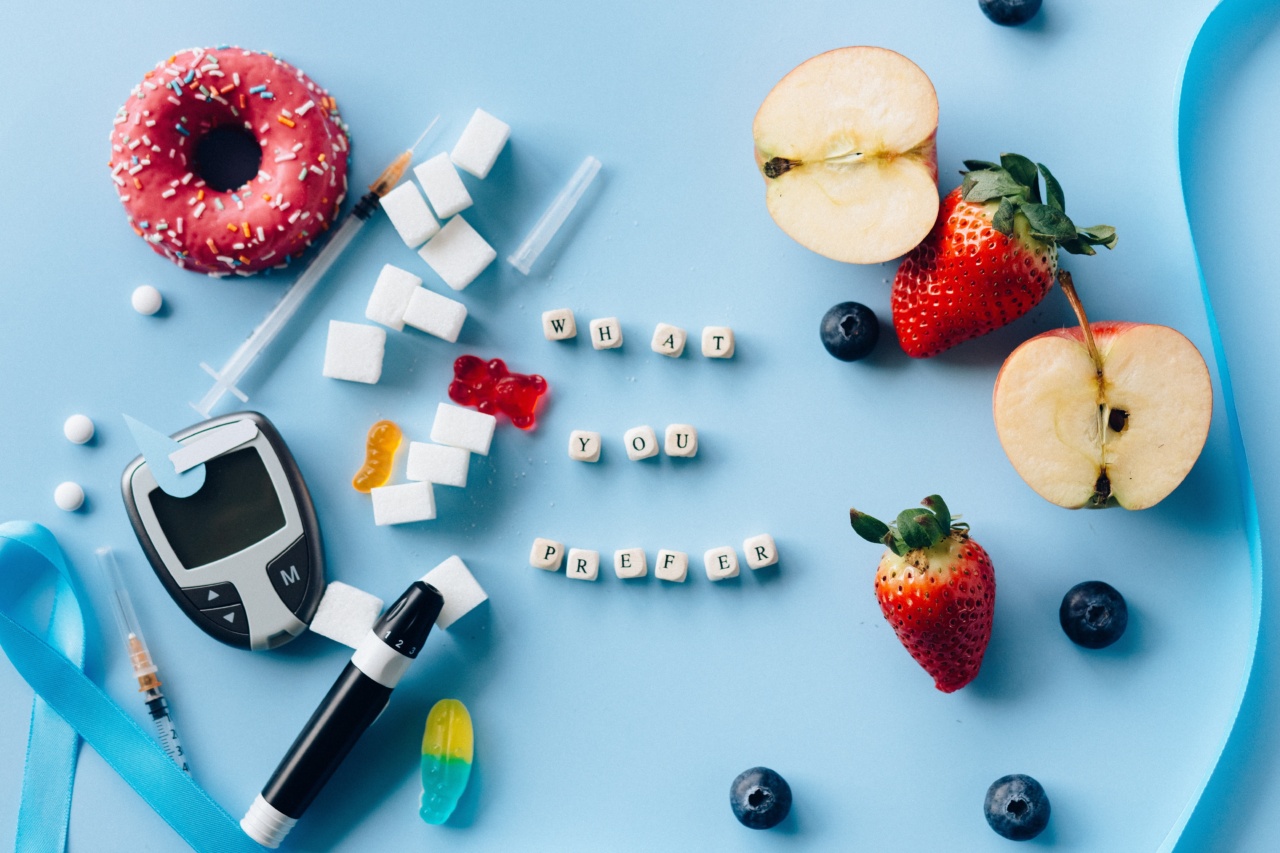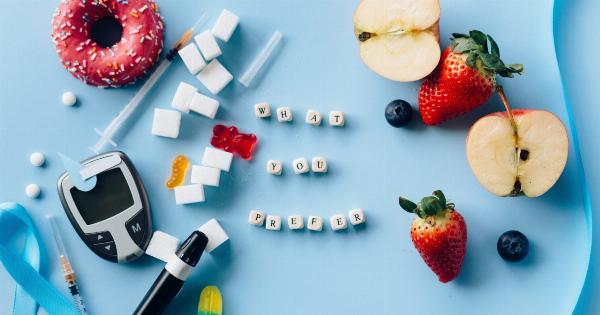Cancer is a disease that affects millions of people worldwide. The development of cancer is a complex process that involves several factors, including genetics, lifestyle, environmental factors, and diet.
There is increasing evidence that high levels of insulin and sugar in the blood can contribute to the development of cancer and its progression. In this article, we will explore the role of insulin and sugar in cancer development and what steps can be taken to reduce the risk.
What is Insulin?
Insulin is a hormone produced by the pancreas that regulates the metabolism of carbohydrates and fats in the body.
It helps to maintain healthy blood sugar levels by allowing glucose (sugar) from the blood to enter the cells, where it can be used for energy or stored for future use. Insulin also plays a critical role in the growth and division of cells.
Insulin Resistance and Cancer
Insulin resistance occurs when cells in the body become less responsive to insulin, leading to higher levels of insulin in the blood. This condition is commonly seen in people with type 2 diabetes and obesity.
Insulin resistance has been linked to several types of cancer, including breast, prostate, and colon cancer.
One theory is that when insulin levels are high, it stimulates the growth and division of cells, including cancer cells. Insulin also activates a signaling pathway known as the PI3K/Akt/mTOR pathway, which is often overactivated in cancer cells.
This pathway promotes cell growth and division and inhibits cell death, which can contribute to the development and progression of cancer.
Sugar and Cancer
Sugar is a type of carbohydrate that provides energy to the body. When we consume sugar, it is broken down into glucose, which is then transported in the blood to the cells that need it.
However, excessive consumption of sugar can lead to high levels of glucose and insulin in the blood, which can contribute to the development of cancer.
Studies have shown that high levels of sugar in the diet can increase the risk of several types of cancer, including pancreatic, breast, and colon cancer. One reason for this is that cancer cells tend to rely on glucose as their main source of energy.
When there is a lot of sugar in the blood, it can provide an abundant source of energy to cancer cells, allowing them to grow and divide more rapidly.
Another factor is that high levels of glucose can cause inflammation in the body. Chronic inflammation has been linked to several types of cancer, including liver and colorectal cancer.
Reducing the Risk of Cancer
There are several steps that can be taken to reduce the risk of cancer, including:.
Eating a Balanced Diet
Eating a balanced diet that is rich in fruits, vegetables, whole grains, and lean proteins can help to reduce the risk of cancer. These foods are rich in nutrients and antioxidants that help to protect the body from oxidative stress and inflammation.
Limiting Sugar and Processed Foods
Limiting the consumption of sugar and processed foods can help to reduce the risk of cancer. These foods are often high in calories, saturated fat, and unhealthy additives, which can contribute to obesity, insulin resistance, and inflammation.
Exercising Regularly
Regular exercise can help to reduce the risk of cancer by improving insulin sensitivity and reducing inflammation.
Exercise has also been shown to increase the production of hormones that promote feelings of happiness and well-being, which can help to reduce stress and anxiety.
Maintaining a Healthy Weight
Obesity is a risk factor for several types of cancer, including breast, colon, and prostate cancer. Maintaining a healthy weight through diet and exercise can help to reduce the risk of cancer and improve overall health.
Getting Regular Screenings
Getting regular screenings for cancer can help to detect the disease early, when it is most treatable. Screening tests may include mammograms, colonoscopies, and prostate exams, depending on age, family history, and other risk factors.
Conclusion
Insulin and sugar play a critical role in the development and progression of cancer. High levels of insulin and sugar in the blood can contribute to insulin resistance, inflammation, and the growth and division of cancer cells.
By making healthy lifestyle choices, such as eating a balanced diet, exercising regularly, and maintaining a healthy weight, we can help to reduce the risk of cancer and improve overall health.





























